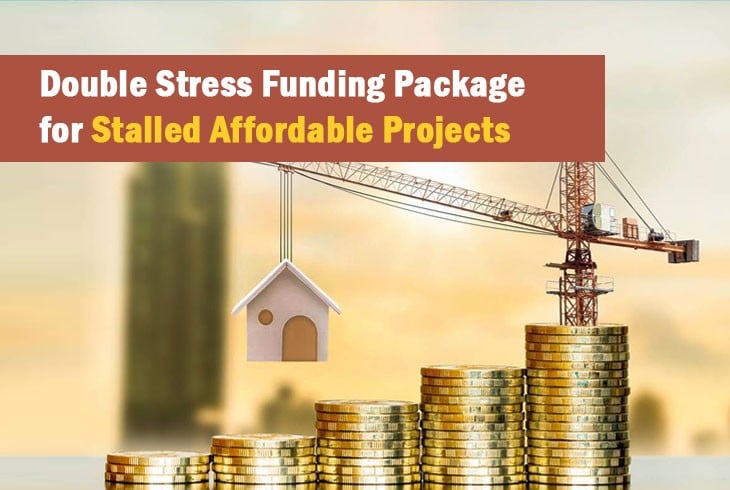The national lockdown to curb the spread of the novel coronavirus pandemic has stalled many Real estate activities. The proportion of 'stressed' projects is expected to grow due to the continuing shutdown, which has resulted in delays in project completion and timely home delivery. To seize the upside of the current disruption and enable speedy completion of real estate projects, global consultancy firm EY has proposed doubling of special stress fund to Rs 50,000 crore to provide liquidity to developers to finish stalled affordable middle-income housing projects.
Special Funding Package for Stalled Projects
Last year, a Rs 25,000 crore special window was approved by the government to provide funding for nearly 1,500 stalled housing projects with the goal of reviving the real estate sector, boosting the economy, and supporting home buyers. The government has so far approved Rs 540 crore worth projects and has issued initial clearance for due diligence in almost 14 projects. Cash Flow management and debt structuring are key to mopping up the current situation.
This will allow a crisis management plan to be drawn up and stress tests on cash position. It will also entail close project monitoring, immediate discussions with lenders on post-moratorium options, and exploration of revival capital for stressed projects. The new fund would be available to only those projects which are managed effectively and can demonstrate complete visibility of cash flows
Interest Waiver Package for Low-cost Housing Loans
In addition, EY also proposed an Rs 11,000 crore package for waiving interest on home loans received for projects under Pradhan Mantri Awas Yojana (PMAY) for three months. Support for the sector in terms of solvency and liquidity will ensure the effect is not permanent. In this regard, the government could immediately announce a three-month interest waiver for low-cost housing loans, such as under PMAY. As buyers of these houses are from the economically weaker section and low-income households, the lockdown may result in a risk of mortgage default from their incomes
Interest exemption for a few months will help both protect vulnerable households, boost demand for low-cost housing developers, and ensure that banks and NBFC trust remain strong in the low-cost housing segment. Besides this, the government can also allow the payment of GST paid on inputs in the construction of commercial property as compensation for GST charged on rents. The government can also permit states to suspend stamp duty for the next nine months in major metropolitan areas to boost demand, as well as defer municipal taxes and other fees for the next six months.
The proposed funding package would provide a much-needed boost to the real estate sector and set it on the path to recovery and growth.
BY: Shailaja K









